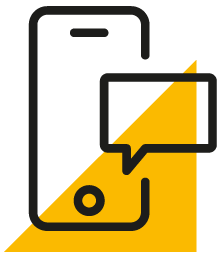What does Web3 mean for business?
By, Chris de Mayo, HLB USA
An emerging tech ecosystem - the next generation internet - is promising to really shake things up in the business world, both physically and digitally; Web3.
Surpassing any of the singular technologies we’ve seen, Web3 is less about isolated tech and more about a convergence of different technologies. Underpinning them all in an ethos that is set to empower the consumer and strengthen relationships between brands and their consumers.
Fundamentally changing the way we all do business as well as our connection to others, what exactly is Web3 and what does it mean for business in the coming years?
What is Web3?
Web 1 was the original, and essentially a ‘read only’ internet that connected computers worldwide. This evolved into Web2, now often referred to as the read-write internet. This evolution saw the addition of a huge range of new functionality, from a broad new range of content and connection options, to real-time news, live streams, social media, online shopping, gaming, and increasingly elaborate web applications.
Web2 is the current status quo, it’s what we use now. Everyone has the ability to create and share content via various platforms, much of which is controlled by the individual platform companies.
Web3 is the next big evolution of the internet. Similar to the metaverse and often referred to as the read-write-own internet, Web3 will create a bridge between the physical world and the virtual by enabling transactional and ownership models that blend real-world and digital assets.
There is huge potential for Web3 to create a fundamental shift through the creation of a genuinely decentralized ecosystem that sees users take control and ownership of their assets, and all of this made possible through new and emerging tech.
What will Web3 look like for businesses?
To understand how Web3 will open up the business world, consider loyalty programmes that already exist. The more your customers spend with a brand, the more rewards they warm to spend on extra products, services or perks with that same brand.
Creating a loyalty programme based in Web3 gives the customer direct ownership of the reward points, allowing them to exchange rewards with other users for currency. This benefits everyone: buyer, seller, and brand. It entices new users into brands’ marketing funnels, drives greater demand and extra revenue, all through secondary sales revenue.
Beyond this, Web3 allows for the ability to hold an object in virtual and physical spaces. At the same time, digital assets can be transferred into new, reinvented, or enhanced forms of ownership. Since the system would incorporate tech like blockchain, there would also be an inherent amount of trust built-in.
Creating this level of ownership online has the potential to completely change how brands and consumers interact. Suddenly, we will be faced with online spaces that are more like the real world than ever before. And it’s not just consumer relationships that will be altered; B2B transactions and partnerships will be altered thanks to the ability to link services and goods in unprecedented ways. This new hybrid version of reality is different to the Metaverse, which is a shared digital reality enabling users to connect and collaborate in real time. While it will enable the creation of economies, there is no inherent interest in ownership, which is the core of Web3.
Opportunities in Web3
There are multiple opportunities presented by Web3, including:
Restoring power to the people
Creating a more user-centric version of the internet puts the people firmly back in the driving seat. Consumers would hold total ownership of their data, offering huge benefits for security and privacy, and potentially granting them personalisation that allowed them to receive money in exchange for their information.
Changing how we communicate
With the potential to allow communication between users that don’t involve any third-parties, Web3 can open up whole new avenues for communication.
Transforming business infrastructure
With blockchain tech enabling us to represent and record ownership, cryptocurrencies may be able to facilitate payment for goods and services, for example, with non-fungible tokens enabling digital ownership of different assets (including NFTs), or stablecoins enabling the exchange of money and precious metals. This decentralized finance could potentially reshape the commercial and operational infrastructure.
Risks and pitfalls of Web3 technology for corporations
Part of the risk involved in Web3 is that we currently have many unanswered questions. For example, while using decentralised computing and blockchain could technically allow for information exchange in the digital landscape without the need for centralized third-party governance, who would be building and maintaining the apps if this were happening? How would content be moderated? There is the risk here that Web3 could - if left unchecked - degenerate into an unsafe environment with no means of moderating hate speech.
In addition, there are fears that Web3 may simply pose another disruption that leaders need to navigate. Modernisation is essential to staying relevant. Businesses will need to adapt to Web3 whether they want to or not, and thriving in that environment will require a combination of high emotional intelligence and a finely tuned growth mindset. Those who are not driven by a constant state of learning may struggle to adapt to this change.
Getting set up for Web3
To prepare for the arrival of Web3, most companies will need to step outside their comfort zones. At the very least, there will be the need to rethink elements of your business. Giving customers more control and ownership may seem like an unsettling concept. At the same time, it may be necessary to rethink your company ethics and privacy policies, as well as cybersecurity. HLB can guide you through the potential gains and possible pitfalls of Web3, and ensure you’re prepared to not only embrace the next evolution of the web, but leverage it for maximum profit. Get in touch today to find out how we can help you plan for this transition.






